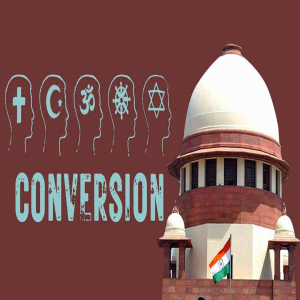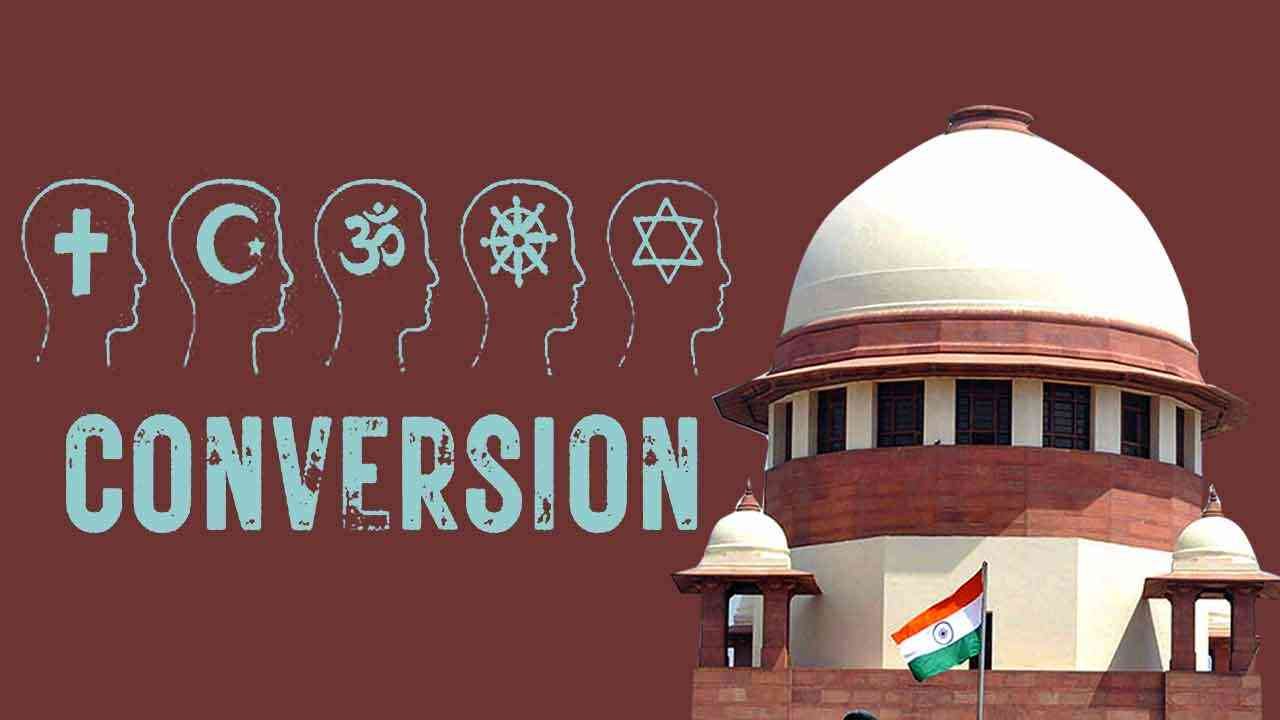
.jpg) Isaac Gomes
Isaac Gomes

On July 20, an eight-member delegation from the United Christian Forum (UCF) met Union Minority Affairs Minister Kiren Rijiju and expressed grave concerns over the weaponisation of anti-conversion laws against religious minorities. They urged the minister to get the laws repealed. They also submitted a memorandum on incidents of violence against Christians in various states.
In 2023, the UCF recorded 733 incidents of violence against Christians, averaging 61 incidents per month. Even more alarmingly, in the first six months of 2024, 361 incidents targeting Christians have been reported. Chhattisgarh and Uttar Pradesh emerged as the states with the highest number of incidents, with 96 and 92 cases, respectively. The document detailed several harrowing incidents, including murders, assaults and false accusations under anti-conversion laws. This meeting follows a meeting between Prime Minister Modi and a Roman Catholic delegation led by Archbishop Andrews Thazhath of Trichur on July 12.
Anti-conversion laws are designed to prevent or prohibit one's conversion from one religion to another. Research by the US Library of Congress
(LOC) shows that laws restricting religious conversions were initially introduced by "over a dozen princely states, including Kota, Bikaner, Jodhpur, Raigarh, Patna, Surguja, Udaipur, and Kalahandi." These states were headed by Hindu royal families during the British colonial period, particularly in the latter half of the 1930s and 1940s. They enacted the laws "in an attempt to preserve Hindu religious identity in the face of British missionaries" (Source: India Today 23.12.2020).
Following India's independence, Parliament introduced several anti-conversion bills, but none were enacted. First, the Indian Conversion (Regulation and Registration) Bill was introduced in 1954 to enforce the "licensing of missionaries and the registration of conversion with government officials." This bill was rejected as it failed to garner majority support in the Lok Sabha.
This was followed by the introduction of the Backward Communities (Religious Protection) Bill in 1960, "which aimed at checking conversion of Hindus to 'non-Indian religions' which included Islam, Christianity, Judaism and Zoroastrianism". Parliament also did not pass this bill due to lack of support.
The following 11 states have enacted anti-conversion laws to restrain change of religion (mainly from Hinduism to Christianity or Islam) by individuals or groups through inducement, force, coercion or any other fraudulent means: (1) Odisha (1967), (2) Madhya Pradesh (1968), (3) Arunachal Pradesh (1978), (4) Chhattisgarh (2006), (5) Gujarat (2003), (6) Himachal Pradesh (2019), (7) Jharkhand (2017), (8) Uttarakhand (2018), (9) Uttar Pradesh (2020), (10) Karnataka (2022) and (11) Haryana (2022).
Although Arunachal Pradesh passed the Freedom of Religion Act in 1978, it was never enforced. Arunachal Pradesh Chief Minister Khandu announced in 2018 that the Act would be repealed (Source: Northeast Now, February 24, 2021).
Tamil Nadu passed similar legislation in 2002 and Rajasthan in 2006 and 2008. However, after protests by Christian minorities, Tamil Nadu legislation was repealed in 2006, while in Rajasthan, the bills did not get the approval of the governor and the President of India. On Tuesday, June 18, 2024, the Rajasthan government told the Supreme Court that it was bringing in legislation against carrying out religious conversion through illegal means in the state.
The basic premise of anti-conversion laws is that conversion is mostly done through inducement, force or fraud. Therefore, the respective state governments have fixed the onus on the accused to prove that he/she has not violated the legal provisions. According to these laws, "inducement or allurement" means the offer of any gift or gratification, either in cash or in kind and shall also include the grant of any benefit, monetary or otherwise. In the Haryana Act, "allurement" also means education in a school run by any religious body, divine pleasure and a better lifestyle. There is a problem with this legal definition. For example: "In a church-run school in Haryana, if a non-Christian student is given fee concession or scholarship or full fee waiver, it can be construed as an allurement/gift from the church authorities with the hidden agenda of religious conversion and therefore a violation of anti-conversion law.
Though several states have anti-conversion laws, there is no such central government law. In 2015, the Union Law Ministry stated that Parliament lacks the legislative authority to enact legislation prohibiting conversion.
In general, anti-conversion laws in India require that individuals seeking to convert to another religion obtain prior written permission from the government authorities (In UP, before conversion, 60 days' notice as per Schedule-I and after conversion, declaration within 60 days as per Schedule-III). Some states have more stringent anti-conversion laws than others and impose both jail terms and heavy fines. In UP, this Act does not apply to one who "reconverts to his/her immediate previous religion." This is to facilitate the "Gharwapsi" of Christians and Muslims back to the Hindu religion.
Indian Government against en bloc transfer of petitions on anti-conversion laws to Supreme Court
• Anti-conversion laws passed in the above states have been challenged in courts.
• 21 petitions have been filed in the Supreme Court of India over anti-conversion law cases pending in Himachal Pradesh, Madhya Pradesh, Uttar Pradesh, Jharkhand, Gujarat and Karnataka high courts. The petitioners wanted anti-conversion laws in the above states to be declared unconstitutional for trampling on the Right to Freedom of Religion. They appealed that all the High Court cases on these laws be transferred to the Supreme Court.
• Attorney General R. Venkataramani raised strong objections to these petitions being transferred to the Supreme Court.
• On February 03, 2023, the CJI-led bench sought responses from the above-mentioned state governments on petitions challenging the validity of the Religious Freedoms Act. It fixed March 17, 2023, as the next date for the composite hearing.
• No further updates on this composite hearing are available in the public domain.
The Supreme Court, on March 24, 2023, protected members of the Christian community from coercive action by the Uttar Pradesh Police based on an FIR registered under the state's anti-religious conversion law.
On May 16, 2024, the Supreme Court of India observed that certain provisions of the Uttar Pradesh Prohibition of Unlawful Conversion of Religion Act 2021 might infringe upon the fundamental right to freedom of religion guaranteed under Article 25 of the Constitution. Justice Misra, reviewing the Act, noted that conversion by itself is not an offence, but when it is brought about by undue influence, misrepresentation, coercion, etc. So, in these circumstances, only the victim can say that he/she has been illegally converted, and no other person can. The case relates to Rajendra Bihari Lal (Vice Chancellor Sam Higginbottom University of Agriculture Technology and Science), who was accused of persuading a woman to adopt Christianity by offering her a job and other benefits.
The Indian Church is well-known for rendering yeoman service in the Education and Healthcare sectors. It is not into proselytisation. The fact that the Christian population has remained static at 2.3% in two consecutive censuses (in 2001 and 2011) proves the fallacy of anti-conversion laws being applied against Christians.
Most importantly, anti-conversion laws contravene the Fundamental Rights, namely (1) Articles 12-17, 19-22, and 25-28 on the Right to Freedom of Religion. Article 25(1) states, "Every person has the freedom of conscience and the right to profess, practise and propagate religion". This right is subject to public order, peace, morality, and health.
Article 26 guarantees freedom to manage religious affairs subject to public order, morality and health. Every religious denomination shall have the right to:
(a) Establish and maintain institutions for religious and charitable purposes;
(b) Manage its own affairs in matters of religion;
(c) Own and acquire movable and immovable property; and
(d) Administer such property in accordance with law
However, the Right to Freedom of Religion does not mean a fundamental right to convert any person to one's own religion (Supreme Court of India - Rev. Stanislaus vs State of Madhya Pradesh & Others, 1977).
India is a secular democracy. This means (1) No religion should be given official patronage, and no religion should be denigrated. (2) People of different faiths have the freedom guaranteed by the Constitution to follow their preferred religion without any fear of reprisal as long as they maintain public order. Anti-conversion laws have taken away this freedom. It is a fit case for the Supreme Court to question the Constitutionality of these laws, more so as the Union Government hasn't been able to frame any such law.
Therefore, one wonders why UCF leaders met the Union Minister (erstwhile Union Law Minister) when the Supreme Court of India was seized of the composite hearing of anti-conversion cases. Has the minister given them concrete hope in return for shelving the Supreme Court matter?
In the fitness of things, let me cite a classic reply of St Teresa of Calcutta on conversion: "Yes, I convert. I convert you to be a better Hindu, or a better Muslim, or a better Protestant, or a better Catholic, or a better Parsee, or a better Sikh, or a better Buddhist. And after you have found God, it is for you to do what God wants you to do."